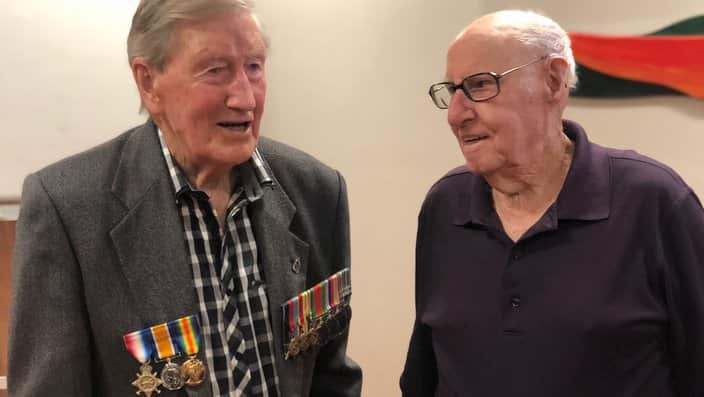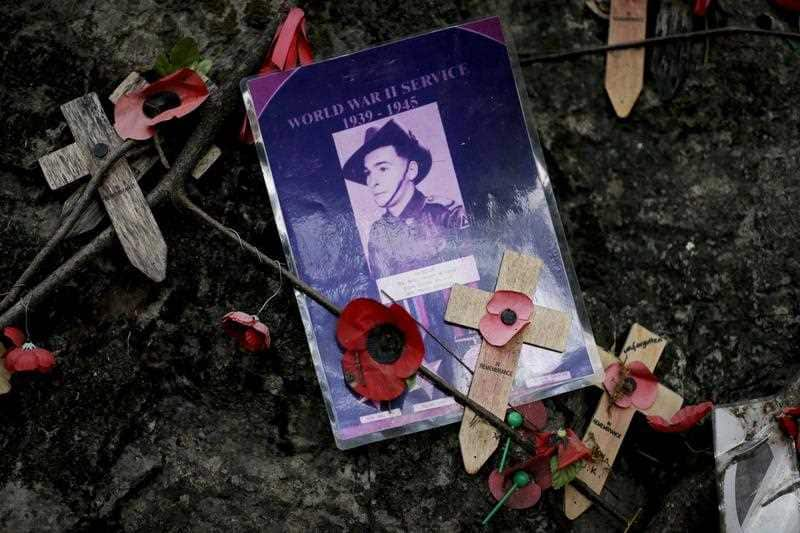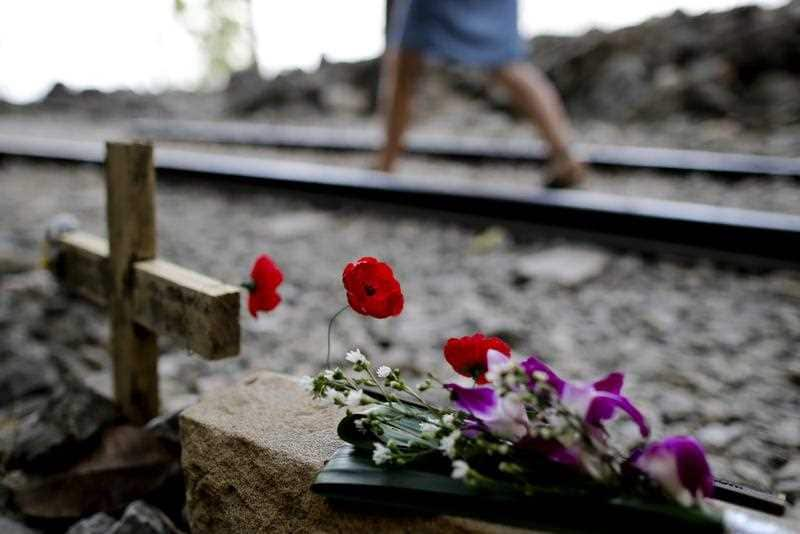It was the infamous railway built by Prisoners of War to supply Japanese forces during World War II - and October 16 marks 75 years since the completion of the Thai-Burma railway, which saw tens of thousands die during its construction.
Even now, those horrific memories of starvation, abuse and death are never far from the thoughts of former Australian POWs, 99-year-old Colin Hamley and 98-year-old Norman Anderton.
"Well, all you did, you lived from one day to the next. The best you could say about them (the Japanese), was that they were a team of vindictive bastards," Mr Anderton told SBS News.
"And they took their spleen out on us."

Mr Anderton was wounded in action, just two days before Singapore fell to the advancing Japanese army, while Mr Hamley had served in the Middle East during the desert campaign against the Nazis before his journey back home took an unwelcome detour via Java.
"Instead of turning more southerly, we started to head in a northerly direction and we realized we weren’t coming home to Australia, we were going somewhere else. And we were landed in Java," he said.
The two young Diggers were soon captured by the Japanese Imperial Army, along with more than 60,000 Allied troops.
The Japanese also took more than 250,000 locals into captivity to be used as forced labour.
POWs and civilian forced labourers alike were forced to build the 415km railway connecting Thailand and Burma, allowing the occupying Japanese forces to bypass vulnerable sea routes.

These forced workers were effectively starved by their captors and forced to work for hours without respite
"We lived on a glass of pap - which was just mushy rice - twice a day," Mr Anderton said.
"A cup in the morning and a cup in the afternoon. And I went down with Malaria and dysentery."
Mr Hamley said working conditions were made even more horrific because of the lack of medical supplies and food - but that adversity also fostered a sense of mateship among the Diggers.
"You know, I had my 21st birthday in Burma. And my mate, he gave me a present. He pulled out a packet of 10 cigarettes, that he'd kept for the last 18 months. And we shared a packet of cigarettes on my 21st birthday, in June, 1943," he said.

Hellfire Pass (Konyu Cutting) was the deepest and longest rock cutting along the entire length of the Thai–Burma railway and came to symbolise the inhumane working conditions.
Neither Mr Anderton or Mr Hamley were assigned to the infamous spot, but they heard the stories of brutality.
"The worst workforce was in Hellfire Pass. And that was holding the whole railway up, and they decided they'd have to work two shifts," Mr Anderton said.
"So the night shift worked under the fire of bamboo, and someone made a casual comment that this must be what hell looks like. And that's how the term Hellfire got its name."
On October 16, the pair will commemorate 75 years since the completion of the Thai-Burma railway.
They said they would use the opportunity to remember the more than 2800 Australian and 10,000 allies who died during construction.
"I’m so proud of the way our people handled themselves, at the time and in the ensuing years, after the war," Mr Hamley said.

